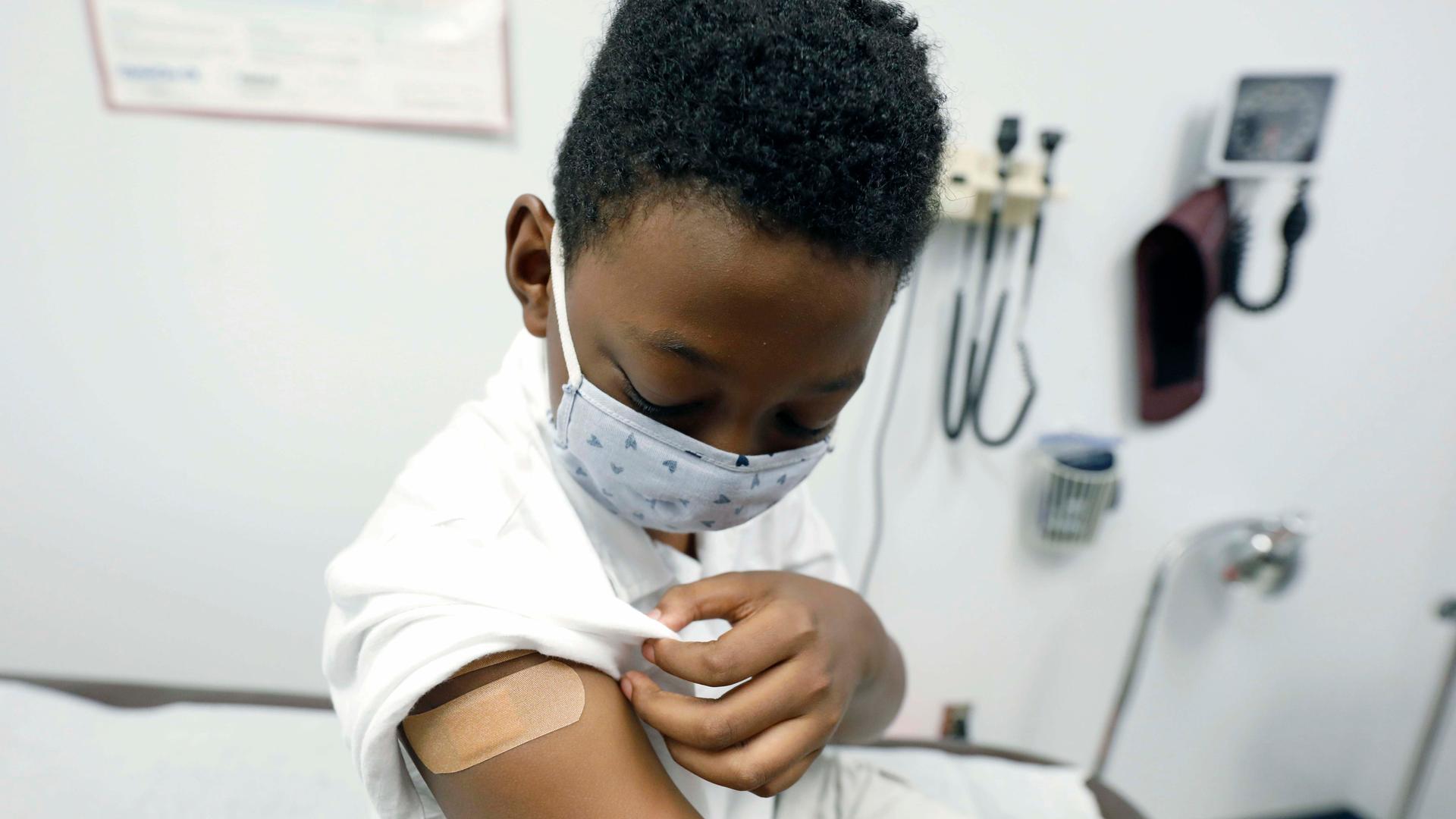Jeremiah Young, 11, examines his bandage covering during an appointment with Dr. Janice Bacon at the Community Health Care Center on the Tougaloo College campus in Tourgaloo, Miss., Aug. 14, 2020.
The evidence is only growing: this pandemic isn’t impacting us all equally.
A new investigation published this week adds another data point. Across the United Kingdom and the United States, Black people are about twice as likely as white people to be infected by the coronavirus. Asian people are about one and a half times as likely to be infected.
That’s based on a review of data in published studies by scientists at the University of Leicester and Nottingham. Their work looked at more than 18 million people who took part in 50 studies in the UK and US. It’s the largest such investigation to date.
Charles Kwaku-Odo is the chief officer of the Caribbean and African Health Network, or CAHN, which works to reduce health inequalities in Manchester, England. He spoke to The World’s host Carol Hills about the study’s findings.
Related: Discussion: Pandemic exposes health inequities of vulnerable communities
Carol Hills: Charles, this is at least the third major report that’s raised alarms about racial disparities and COVID-19. It includes infection data from last December up to this August. Do you think anything has changed since then as we learn more and more about the racial disparities of this pandemic?
Charles Kwaku-Odo: No, sadly, nothing has changed, and so therefore nothing is changed when it comes to the data and the outcomes. You’re very right. This is a third major report. I’m in England. We have the Public Health England doing a rapid review. They then did a second report. But sadly, all the recommendations haven’t been implemented yet. The calls we’ve made for targeted engagement and a move away from just generic communications to more community engagement hasn’t really happened. And the massive barrier to all this is the lack of trust — lack of trust or services. And this has been around for decades. And so therefore, unless health bodies and organizations begin to address the issue around lack of trust and the systemic racism, then even if we did another report six months down the line, Black people will be disproportionately impacted at even worse rates.
In the UK, where you are, who are you asking for the changes and what specifically are you recommending?
We’ve engaged with our city region mayor, and then the various local authorities are trying to work more with communities. So we’ve brought together about 20 Black influencers and community and faith leaders to talk about how best the community could be engaged and how they could get the prevention messages across.
Now, the authors of this report make some connections about why the disparities might exist. Black and Asian people are more likely to be in frontline jobs like health care. And racism and structural discrimination may also contribute to worse clinical outcomes. Have you been seeing that in your community?
Yes, we see that. Just two days ago, I was having a conversation with a Ugandan man who is working in sheltered accommodation. And sadly, when someone contracted coronavirus —and they should have been asked to go home and self-isolate — they weren’t told that they actually had COVID-19 and now he’s unwell with COVID-19 himself. So basic procedures and protocols are not being followed and people continue to remain on the front line and it’s resulting in higher rates. I mean, in the city of Manchester, for example, we have 26% of Caribbean people who contract COVID-19 will end up in intensive care. And while in intensive care 56%, sadly, do pass away. So you know, the rates and the spike continues. People are still thinking coronavirus is a myth and that the vaccine, it’s all perpetuated by a small group of people who want to make money. And sadly, our local authorities and institutions are not having the right level of engagement.
This interview has been edited and condensed for clarity.
